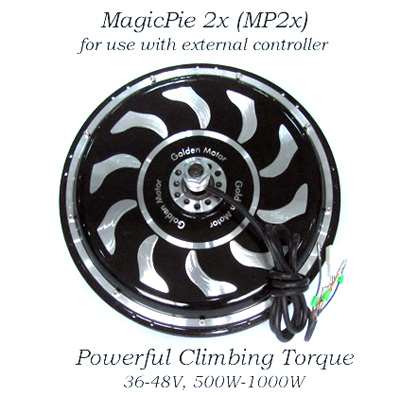If the semicircular heat sink plate was intended to provide structural strength it was a fully circular plate. It doesn't make sense to protect only half of the spokes.
I don't honestly think the heatsink was meant to increase the torsional strength of the stator, but it does.
Magic Pies with internal controller have a semicircular heatsink plate bolted to the stator spokes as shown here:

This plate (whether intentionally designed to do so or not) also helps to stiffen up the stator spokes and therefore reduces the amount of torsional wind up within the stator itself when under load.
The radial spoked stator design is very poor for transmitting high torsional load, which is why you won't find many brake discs with radial spokes.
Most brake discs utilise angled spokes like this one:

These are specifically designed to withstand torsional force in one direction only, that's why it has an arrow to show which way around it should be fitted.
To withstand high amounts of torque in both directions
(which the stator is regularly subjected to if regen is used) it would be much better to have triangulated spokes similar to these:

The design of the Magic Pie stators is almost as basic as an old cart wheel:


but the cart wheel does not have to transfer any torque through the spokes, it just had to support the load on the axle and withstand road shock from potholes and the occasional lateral forces encountered on fast cornering, which would probably have resulted in wheel failure anyway.

The stators could be made a lot stronger
(and probably a lot lighter too) but it would require a redesign by someone who is familiar with the strengths and limitations of the materials being used, and fully understands all of the stresses that the stator has to withstand.
Some of the modern 3D design software packages are quite simply amazing, and they also incorporates stress analysis functions which can virtually simulate all of the stresses involved and thoroughly test any design concept before going into production, but I suspect that finding an experienced design engineer to carry out the development and design work would be both difficult and expensive.
Is it possible to buy a stand alone stator ? Where ? How much does it cost ?
The original MKI Magic Pies are no longer produced, and I'm not sure whether the axle on the MPII is the same or not, but it might be cheaper to purchase a MPII motor assembly for $138 plus shipping:

You would need to swap the stator with yours
(assuming they're interchangeable) otherwise you will need to purchase a set of spokes to suit the MPII and then re-lace the new motor into your existing rim.
Alan